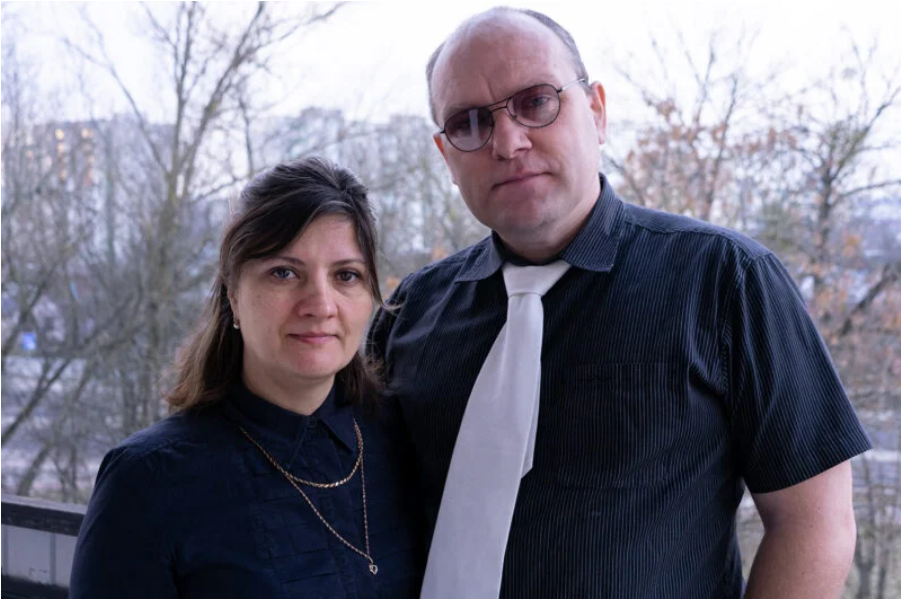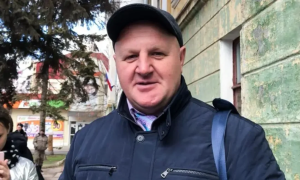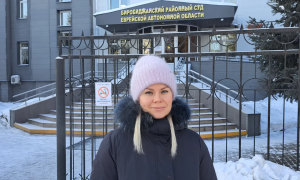Europe’s highest human rights court found the country has violated Jehovah’s Witnesses’ rights to liberty and freedom of religion.

As the world braces for an expected Russian invasion of Ukraine, Europe’s highest human rights court found that Russia has violated Jehovah’s Witnesses’ rights to liberty and freedom of religion. The country has been ordered to pay fines totaling more than 99,000 euros — roughly equivalent to $112,323.
“These judgments set a critical precedent that Russia has been unjustly and unlawfully raiding the homes of Jehovah’s Witnesses,” Jarrod Lopes, spokesperson for Jehovah’s Witnesses, told Religion News Service in an email. There have been 1,700 such raids since 2017, he said.
“Any new home raids based solely on the owner’s religious beliefs are now considered illegal and in violation of the European Convention,” Lopes said.
The European Court of Human Rights issued rulings on two cases Tuesday (Feb. 22). Together, the cases address six instances from 2010-2012 in which Russian law enforcement arrested Jehovah’s Witnesses, raided their homes and places of worship and seized personal items as well as religious materials.
In both cases, the court found Russia guilty of violating Article 9 of the European Convention on Human Rights, which holds that “Everyone has the right to freedom of thought, conscience and religion.”
The ruling in Zharinova v. Russia involved a Jehovah’s Witness named Yekaterina Nikolayevna Zharinova, who was arrested March 17, 2011, while she was “preaching door-to-door” in her hometown of Ivanteyevka, according to court documents. Officers interviewed Zharinova at a police station and seized her personal belongings and religious literature. She was held at the station for four and a half hours. Though a local court dismissed Zharinova’s initial complaint in 2011, the European Court of Human Rights found Russia guilty of violating Article 5, which protects against unlawful detention, as well as Article 9.
Cheprunovy and Others v. Russia is a separate case that addresses several incidents between 2010 and 2012. Jehovah’s Witnesses said Russian authorities searched their private homes and a prayer hall and seized religious literature such as books and magazines as well as computers, notebooks and video recordings.
The ruling says the Russian government suspected the individuals of being involved in illegal activities primarily because they are Jehovah’s Witnesses. The court found that the searches violated Article 9 because they were “carried out without relevant and sufficient grounds and in the absence of safeguards that would confine their impact to reasonable bounds,” according to court documents.
Both judgments are final and will be enforced by the Council of Europe’s Committee of Ministers. The rulings are the latest of several in which the European Court of Human Rights found Russia guilty of religious freedom violations against Jehovah’s Witnesses. Lopes told RNS that these rulings are a prelude to future judgments from the ECHR that will address “the nation-wide banning of Jehovah’s Witnesses, the prosecution and imprisonment of believers, as well as the confiscations of their national headquarters and all their places of worship (Kingdom Halls).”
The rulings come as human rights advocates continue to voice concern about Russia’s treatment of Jehovah’s Witnesses. More than 80 members of the denomination are in confinement in Russia, either serving prison sentences or awaiting trial.
“Today the ECHR sent a clear signal to Russia of what to expect when the Court deals with the over 60 other cases pending involving Jehovah’s Witnesses,” said Lopes. “Jehovah’s Witnesses around the world rejoice to see that their fellow believers in Russia are being validated and protected by the ECHR for staying true to their religious beliefs.”





